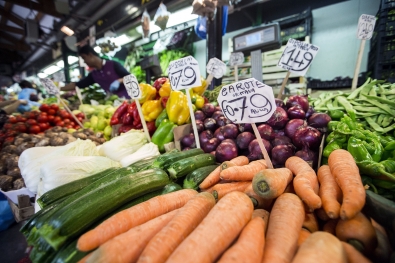The World Rural Forum (WRF), with the support of the Food and Agriculture Organization of the United Nations (FAO), carried out a study to monitor the progress in the implementation of the United Nations Decade of Family Farming 2019-2028 (UNDFF) through National and Regional / Subregional Action Plans on Family Farming. The results of the study are presented in the report Implementation of the UNDFF 2019-2028 through National and Regional Action Plans: lessons learned, good practices, challenges, and opportunities.
The purpose of this report is to offer the reader a global overview of the progress made in the development of National and Regional Action Plans of the UNDFF 2019-2028 and to share lessons learned and good practices, which may serve as an inspiration to other countries and other agents committed to Family Farming, the UNDFF 2019-2028 and the achievement of the Sustainable Development Goals (SDGs) of the 2030 Agenda. These good practices bring key elements to promote policy dialogue in the elaboration and implementation of Action Plans, strengthen the existing policy framework to support Family Farming, and facilitate the implementation and subsequent monitoring of the plans.
In the first two years, significant progress has been made in the implementation of the UNDFF 2019-2028, with 7 National Action Plans on Family Farming approved. There is a huge mobilization of multiple agents – governments, family farmers’ organizations, National Committees of Family Farming (NCFF), FAO and IFAD, etc., that are promoting the UNDFF 2019-2028 agenda in at least 47 countries and 7 subregions of Africa, Asia and the Pacific, Europe, Latin America and the Caribbean.
The main stakeholders welcome the progress made, although they consider that it is necessary to accelerate the process to achieve the expected results and contribute firmly to creating an enabling policy environment for the development of Family Farming. Efforts should be oriented towards enhancing policy dialogue and collaboration between governments, family farmers’ organizations, NCFF, FAO, IFAD, etc.; a stronger mobilization of technical and financial resources to support the elaboration and implementation of UNDFF Action Plans; and last but not least, the strengthening of the capacities of the main stakeholders involved, especially family farmers’ organizations, to participate in the elaboration of the UNDFF Action Plans 2019-2028, the follow-up of the implementation and the dissemination of the plans among family farmers.
The crisis generated by the covid-19 has put on the table the need for States to strengthen their local food systems based on Family Farming. The UNDFF 2019-2028 Action Plans on Family Farming are an opportunity and a concrete instrument to foster policy dialogue and “build back better” with measures and actions to support Family Farming and advance towards more sustainable, inclusive, and resilient food systems and the achievement of the SDGs.
There are very useful lessons learned, good practices and solutions developed by governments, family farmers’ organizations, National Committees of Family Farming, FAO and IFAD, etc. that can leverage and inspire the development of UNDFF Action Plans in other countries and regions.
We wish you a fruitful reading.



